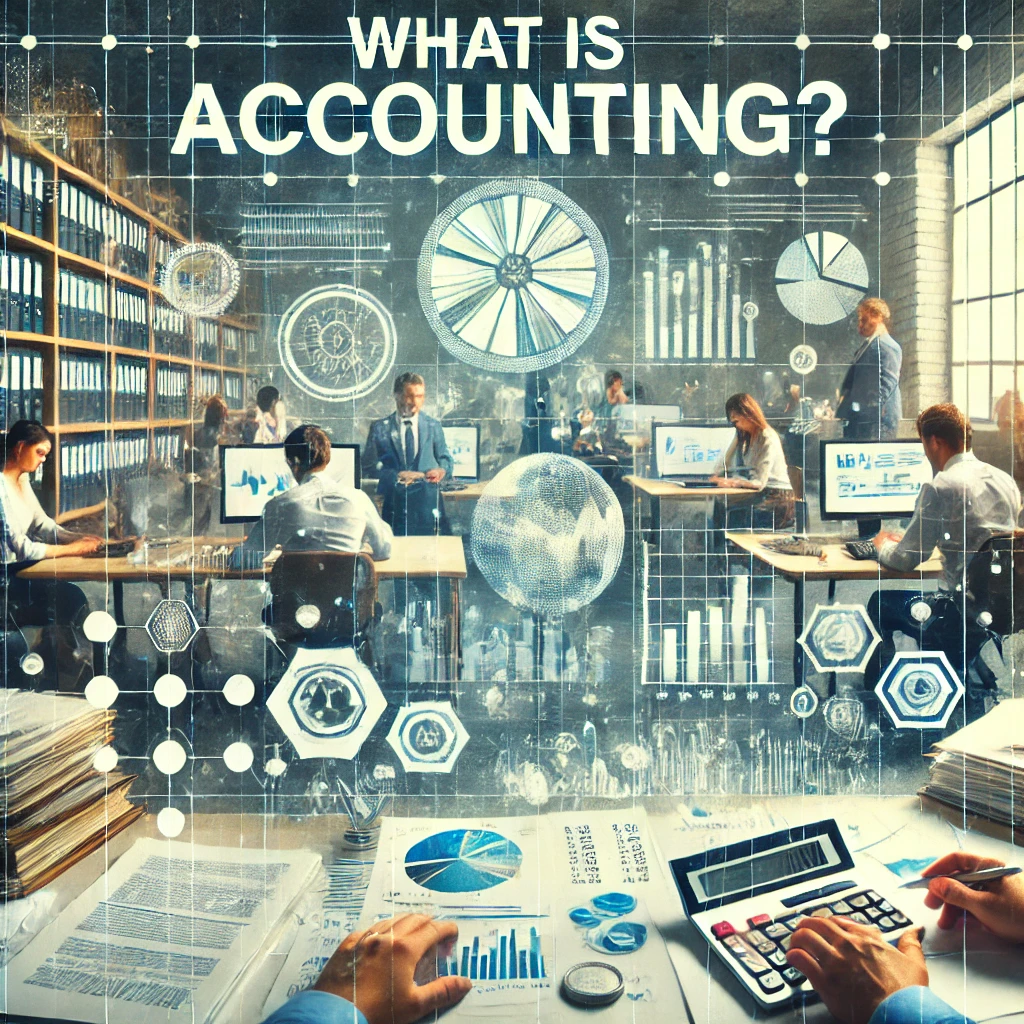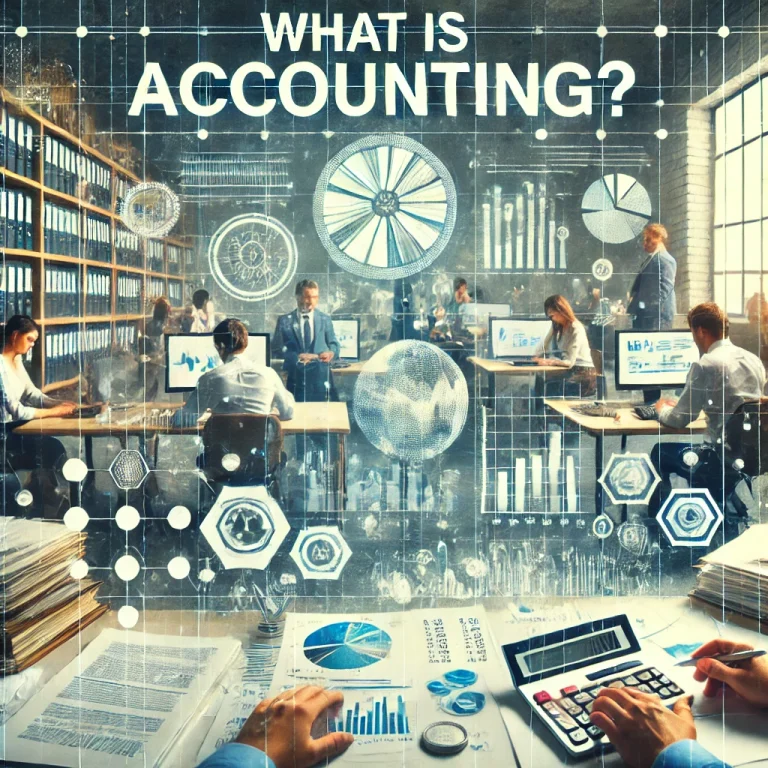Accounting has been called the “language of business,” providing the foundation upon which businesses make informed decisions. It involves the systematic recording, classifying, summarizing, and interpreting of financial data for different stakeholders. The existence of accounting dates back to ancient times, with substantial evolvement over thousands of years of its history over time up to the modern world to become a very crucial tool in business commerce. This article explores the history of accounting, its basic concepts, and its role in contemporary business.
History of Accounting
Accounting dates almost to the dawn of human civilization, as demonstrated by archaeological findings. Accounting is known to have begun in Mesopotamia around 4000 B.C. Accounting functions at this time of civilization took the form of a merchant using clay tablets to record his transactions. This early accounting was primarily concerned with wage and tax payments.
Mesopotamia Accounting
From this bustling city, Babylon, one of the main centers of trade, emerged early accounting. Accounting was used in Mesopotamia not only to post transactions but also to detect fraud and inefficiencies. This region’s record-keeping helped the busy economy maintain order.
Egyptian Accounting
In Egypt, treasurers managed gold and other valuables in the treasuries. Reports of detailed accounting were published to the superior authorities frequently, hence transparent and accountable.
Greek and Roman Contributions
The Greeks and Romans expanded accounting systems. Greek Accounting The Greeks accounted for government revenues, while Romans made use of the use of daybooks, which consisted of receipts and payments with details about a firm’s operations.
Luca Pacioli Influence
Luca indeed professed mathematics and greatly contributed to accounting. He collaborated with Raphael on two projects: the Acts of Apostle and Noah. Several detailed writings related to arithmetic and geometry are attributed to him, and it is claimed he is one of the greatest mathematicians of all time.
Formal accounting profession began with a Franciscan friar named Luca Pacioli in 1494 with the double-entry bookkeeping system that he included in the book Summa de Arithmetica. The double-entry bookkeeping system remains in use to this very day, changing the way business records financial activities forever.
The Evolution of Accounting
From the earliest days of Mesopotamia to the most advanced mode of practice known today, the history of accounting is an example that communicates the relevance of accounting in business. From simple recording to the present, whereby accounting is deemed vital for strategic decision-making purposes, accounting has traveled through a series of changes spanning a few centuries of development. Accounting has developed from being a basic tool used by firms and agencies back in the early days to including a variety of methods and tools to fill the various demands of business stakeholders.
Early Practices
As complexity increased in societies, people required a more systematic method of recording keeping. Accounting systems, initially, were used for recording transactions to essentially document for tax and trade purposes. It eventually became modern financial reporting systems when systematic records assumed a more detailed form in medieval times.
The Double-Entry System
Introduced by Luca Pacioli, the double-entry bookkeeping system was laid and remains the foundation for modern accounting. The double-entry bookkeeping mechanism ensured that for every transaction, there was a corresponding debit and credit entry that eased the tracking and reconciliation of financial activities.
The Role of Accounting in Business Growth
By the emergence of the Industrial Revolution, accounting had already become a supportive tool that a business needs to function. It allowed tracing investment, cost management, and profit reporting. Due to the complex growth of the businesses, accounting methods started growing and introduced new forms such as cost accounting and management accounting.

Basics of Accounting
Accounting is identifying, measuring, recording, reporting, and communicating financial transactions, events, and positions that have an economic impact on a business. The American Accounting Association (AAA) defines accounting as “a systematic process designed to provide useful and reliable information for informed decision-making by users.”.
Key Concepts of Accounting
Comprehending accounting involves getting a grasp of the following foundational concepts. These are the building blocks that are formulated for any financial report:
Economic Events: Economic events are transactions or events which have an influence on the finances of a business. Examples include, but are not limited to, acquiring machinery, sales, and wage payments.
Identification, Measurement and Communication: Accounting involves identifying relevant financial transactions, measuring them in monetary terms, and communicating the same information to its stakeholders, like investors, creditors, and managers.
The Accounting Process
Accounting is a cycle process involving the following basic steps:
1. Recording transactions: All economic events are systematically recorded.
2. Classifying data: Similar types of transactions are grouped.
3. Summarizing information: Data is summarized into financial statements.
4. Interpreting results: Financial information is analyzed to aid decision-making.
Core Principles of Accounting
Accounting refers to a conglomeration of principles that ensure transparency and consistency in the records in financial reporting by ensuring that the financial statements are prepared and presented.
1. The Business Entity Concept
The business entity concept postulates that the business is a distinct entity from that of its owners. Since that separates personal from business transactions, such an understanding allows the accounting statements to be more accurate.
2. The Money Measurement Concept
This principle asserts that only transactions measurable in monetary terms should be recorded in the books of accounts. While qualitative factors like management skills and brand value are important, they are not reflected in accounting records.
3. The Going Concern Concept
This concept assumes that a company can exist forever unless it provides conclusive proof regarding its future closure. This affects the kind of asset value developed within the financial statements.
4. Dual Aspect Concept (Double-Entry System)
This concept is the foundation of any current accounting system. According to this concept, with every debit, there must be a corresponding credit. It must be ensured that the accounting equation, no matter at which stage, always balances that is Assets = Liabilities + Equity.
Modern Accounting and its Relevance
Accounting today is not that bookkeeping it was in the past. Accounting involves financial planning, auditing, tax management, and forensic accounting. It depends on digital technologies for incorporating complex tools, such as ERP systems, which enable businesses to process and manage their financial data much more efficiently and accurately.
Financial Accounting
Focuses on preparing financial statements that provide a clear picture of a company’s financial health. These reports are used by external stakeholders like investors and tax authorities.
Management Accounting
Helps businesses make informed operational decisions by providing detailed internal reports on costs, revenue, and performance metrics.
Forensic Accounting
Specializes in investigating financial crimes, such as fraud or embezzlement, often involving complex analyses of financial data.
Fun Fact
Did you know? The first known use of accounting was in ancient Mesopotamia, where merchants used clay tokens to record transactions!
Key Points to Remember:
1. Accounting traces its origins back to ancient civilizations like Mesopotamia and Egypt.
2. Luca Pacioli standardized the double-entry bookkeeping system in the 15th century.
3. Modern accounting is far, far more than just record-keeping; it provides the decision-making machinery.
4. The most significant concepts in accounting are the business entity concept, the money measurement concept, and the dual aspect principle.
5. Under this system of double entry, each transaction is entered at two places, hence a register is maintained that shows the state of balance in the financial statements.
Quiz Questions
1. True or False: Luca Pacioli is credited with inventing the double-entry bookkeeping system.
Answer: False (He spread the knowledge but did not invent it)
2. What is the basic accounting equation?
Answer: Assets = Liabilities + Equity
3. Which civilization is credited with some of the earliest forms of accounting?
Answer:_ Mesopotamia
4. Multiple Choice: Which of the following is not a key concept in accounting?
a) Money Measurement
b) Going Concern
c) Product Life Cycle
Answer: c) Product Life Cycle
5. Short Answer: What role does accounting play in modern businesses?
Answer: Accounting helps businesses manage financial data, ensures regulatory compliance, and supports decision-making through financial reports.
